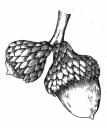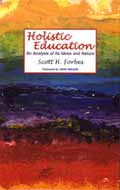|
Holisitc Education for Teachers: Frequently Asked Questions Q: Why didn't I hear about holistic education in my teacher training? You almost certainly did hear about it obliquely, but not by this name. "Holistic Education" as a term has only been around for the last 20 years or so, but as a theory and practice it has been around for more than 240 years. If you heard about the education outlined by Jean-Jacques Rousseau, Heinrich Pestalozzi, or Friedrich Froebel, then you heard something of holistic education. One of the reasons that holistic education is not explored in depth by most teacher training colleges is that the fundamental premises of holistic education are so different to those of mainstream schooling - it would be like having lessons for welding in a wood-working class. However, holistic education is currently discussed more in teacher training courses as the "crisis" in education increases, and this increases the realization that alternatives to what we have been doing in education need to be found. Q: How is teaching different in holistic education? In holistic education there is no curriculum set by "experts" but rather it is developed by the immediate stakeholders—teachers, students, and parents. This ensures that what is studied is relevant and meaningful. However, this means that teachers must be creative and responsive to the individuality of their students. Teachers in holistic schools cannot simply "deliver" a pre-packaged curriculum, which is a challenge to some teachers but a great joy and inspiration to others. Classes in holistic schools are necessarily smaller and there is more of an emphasis on the relationship between the teacher and student. When mechanical learning ceases, mechanical behavior (everyone doing the same thing at the same time, sitting in rows, role playing, etc.) becomes less relevant. Without this, relationships are able to be more authentic and behavior more like that in 'real-life' becomes appropriate, so that the differences between life-in-school and life-outside-of-school disappear. This helps students see the relevance of their learning to their lives, and helps generate an attitude of life long learning. It also helps facilitate the teachers' learning of themselves, their teaching practices, and their students' learning needs. Q: What happens to the students after they have been to holistic schools? They continue their education as any other student of their age would. Sometimes they have a different knowledge base than their peers, but this is similar to a student who may have gone to a school in a different country - it provides the student with a different perspective that is usually more of a help than a hindrance. Students from holistic high schools have not, in the past, had difficulty getting into good universities. Many university admissions officers have explained that the universities appreciate the differences that students from "different" schools bring. Students from holistic elementary or middle schools are often noted as having an easier time adjusting, socially, to public high schools. The difference between what they have learned, in terms of content, is similar to a public-school student who enters the middle or upper grades from a different state that has focused on slightly different standards. In addition, students from holistic elementary schools have "learned how to learn," so whatever content their public-school peers may have acquired, they are quick to pick up. Q: Where can I read more about holistic education? After several decades of teaching, Holistic Education's director Scott H. Forbes wrote a book that examines the writings of six original authors whom holistic educators most often point to as the source of their own inspiration. This book, Holistic Education: An Analysis of Its Ideas and Nature, is particularly important to the field of holistic education because it develops a framework for teachers and researchers to better understand and talk about what has been seen mostly only through intuition up until now. Some of the initial and rigorous work about the history of holistic education is by author Ron Miller. The most well-known of his books, which has helped to establish the field of holistic education, is: What Are Schools For? Holistic Education In American Culture, published by the Holistic Education Press (Brandon, VT). Other books by Ron Miller can be found by doing an author search of the Paths of Learning Education Clearinghouse. In addition, we also consider books by Nel Noddings (such as The Challenge to Care), Rachael Kessler (The Soul of Education), and Jack Miller (Education and the Soul: Toward a Spiritual Curriculum) to be important contributions to the field of holistic education. For a more extensive list of readings in this field, please review our online biblography. Q: What networks exist for meeting more holistic educators and researchers? There are two annual conferences in North America
(usually held in the autumn):
There are a number of groups within mainstream organizations that now address this field:
In addition, there are also conferences around the world related to this field, with a listing about them being maintained by the Holistic Education Network of Tasmania (in Australia). <><> To read more about holistic education, HEI also offers a web page with articles, information about holistic education research, and teacher development opportunities that we invite you to explore. |
The
highest function -J. Krishnamurti Book Review
by |

